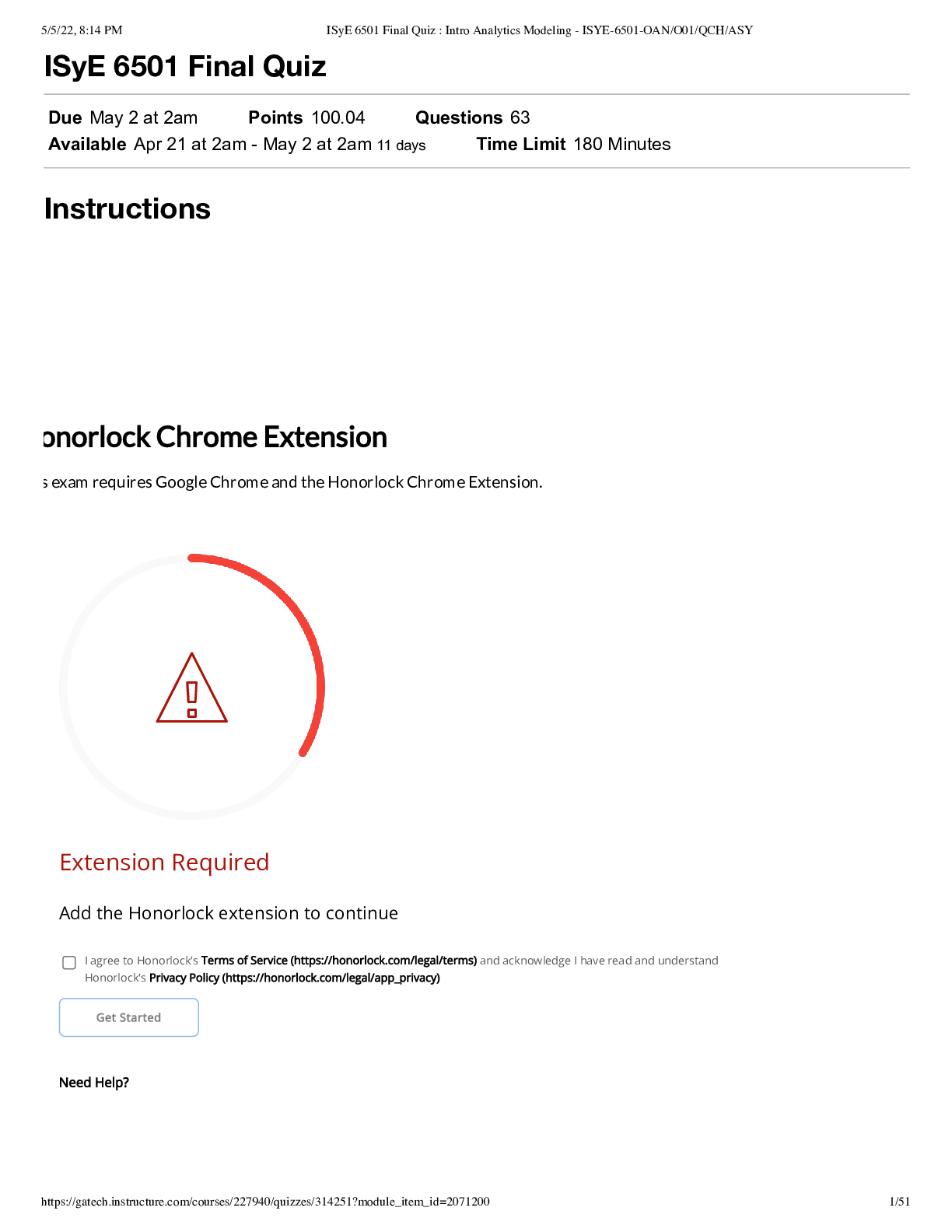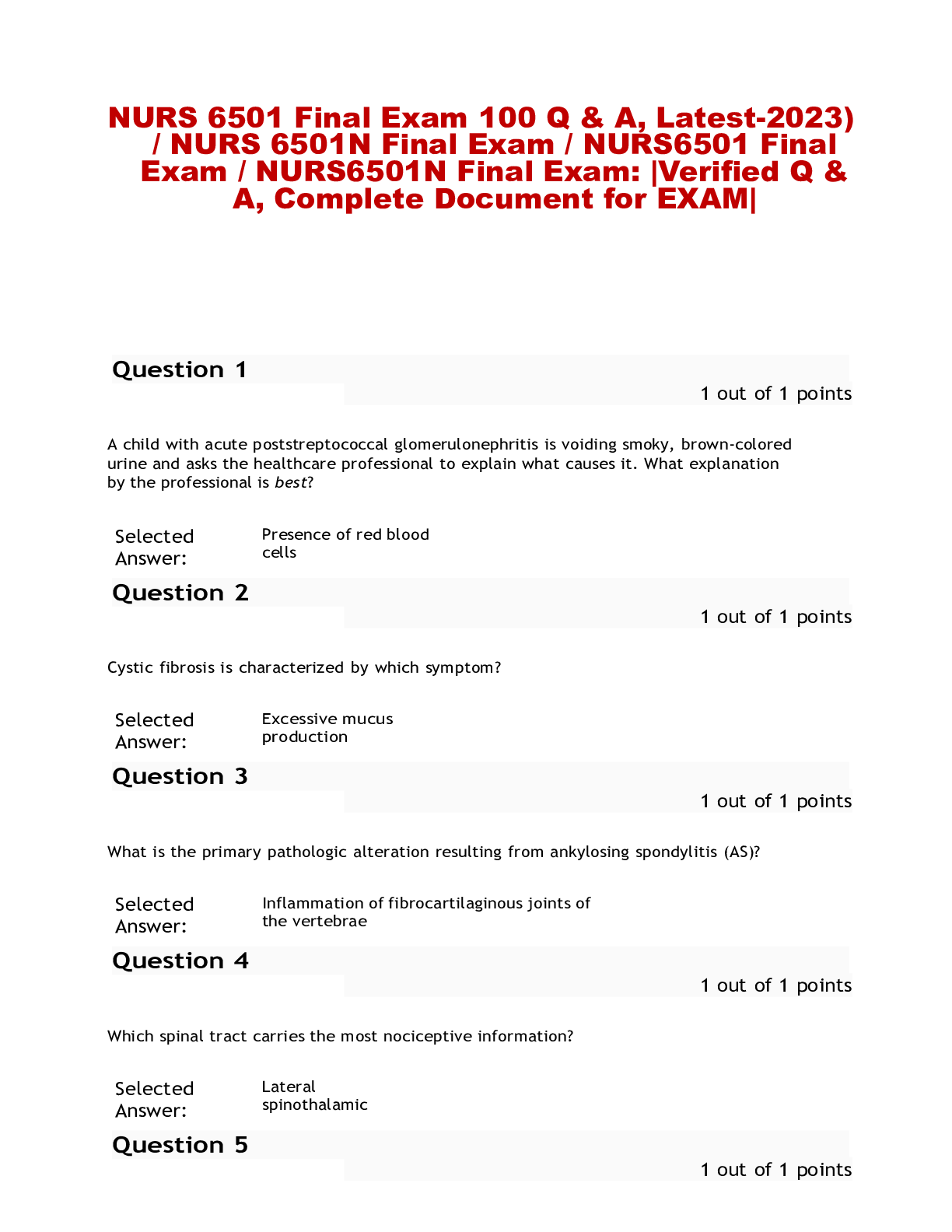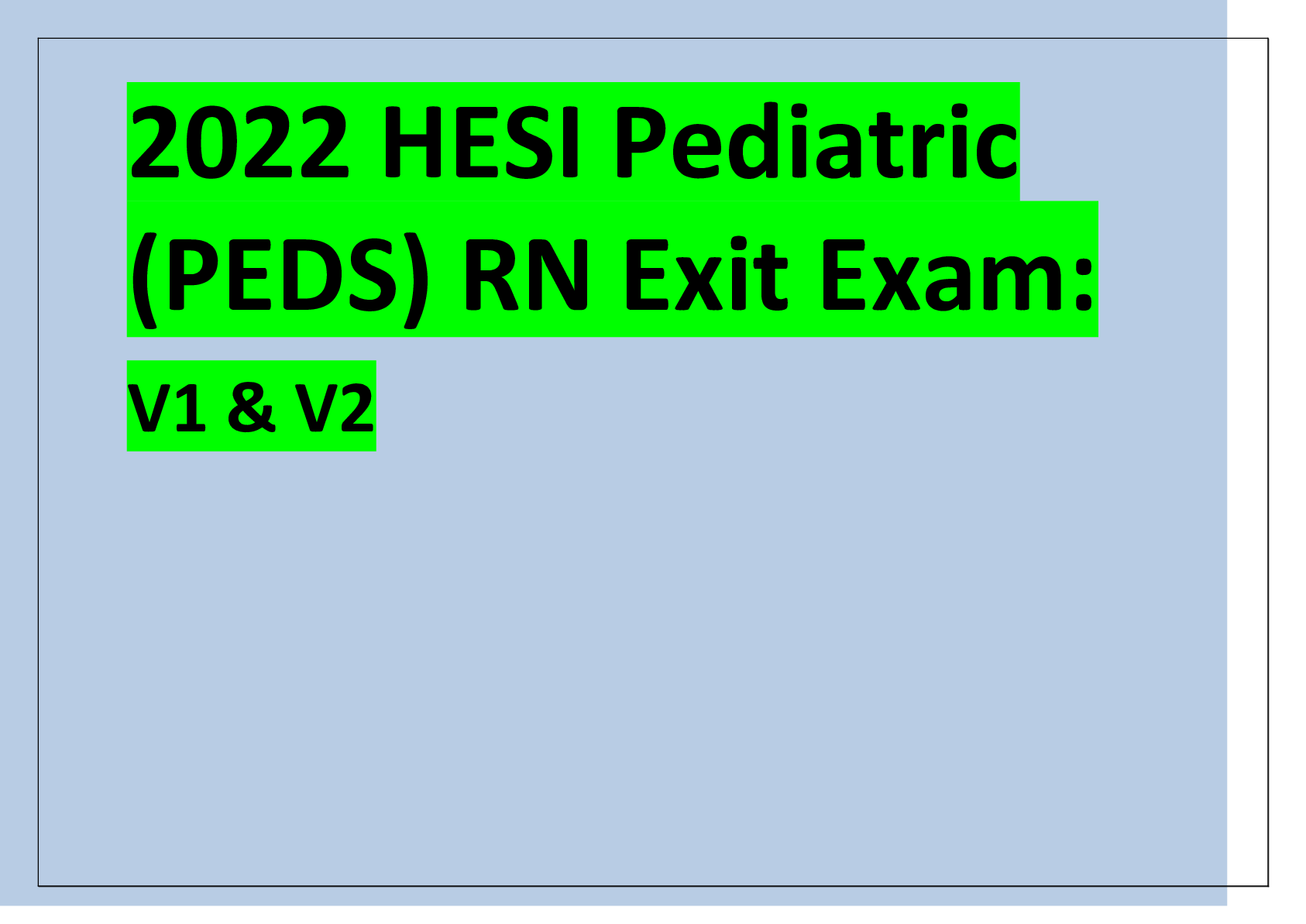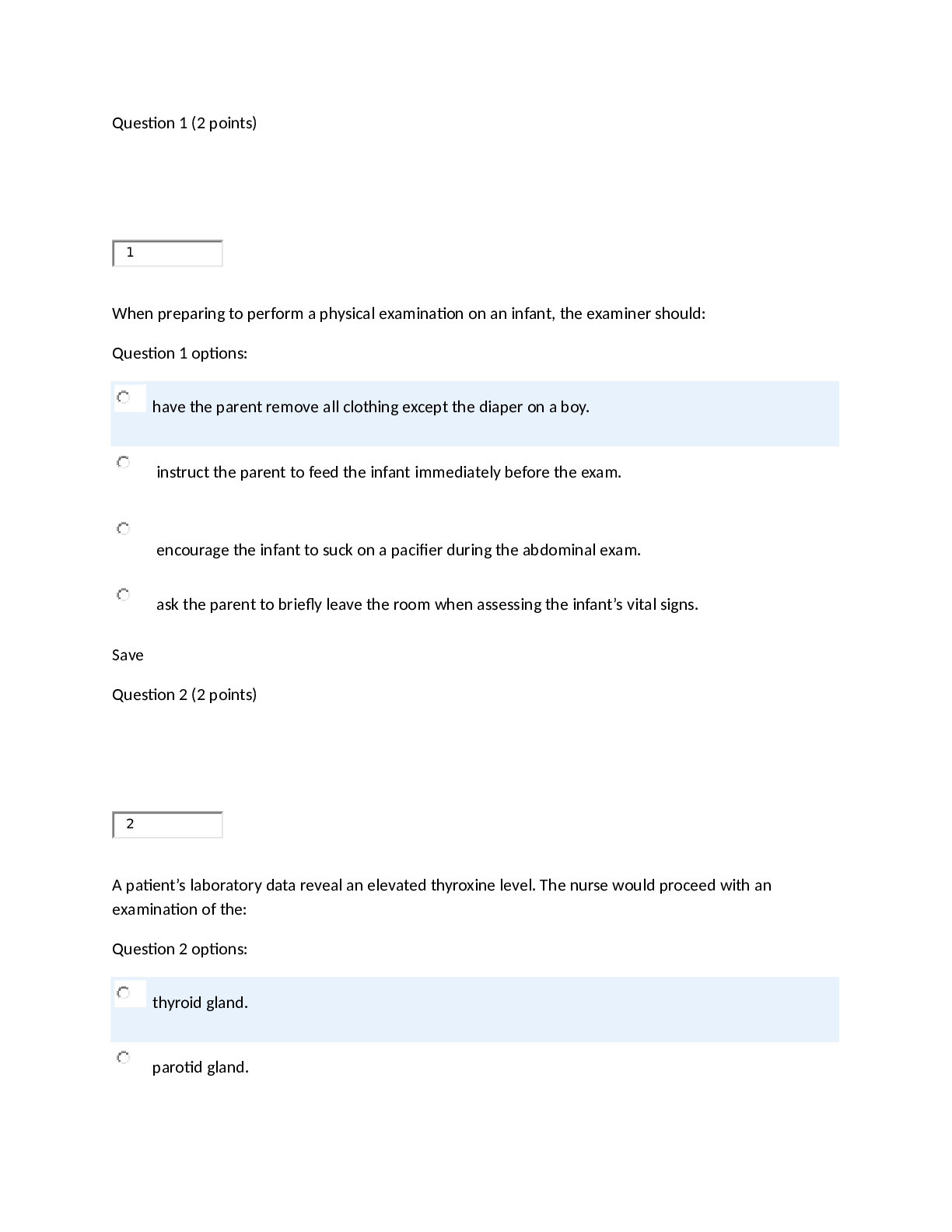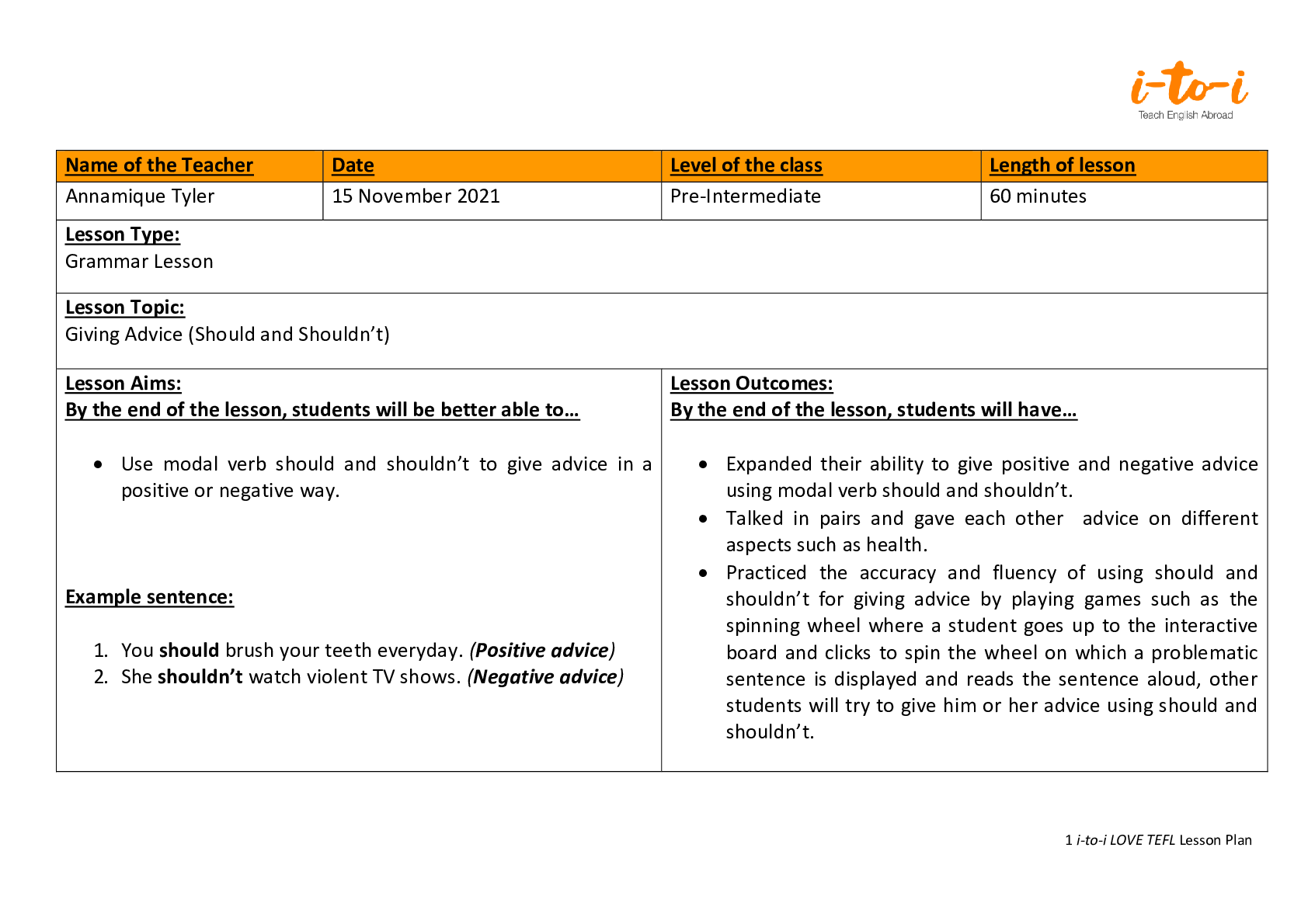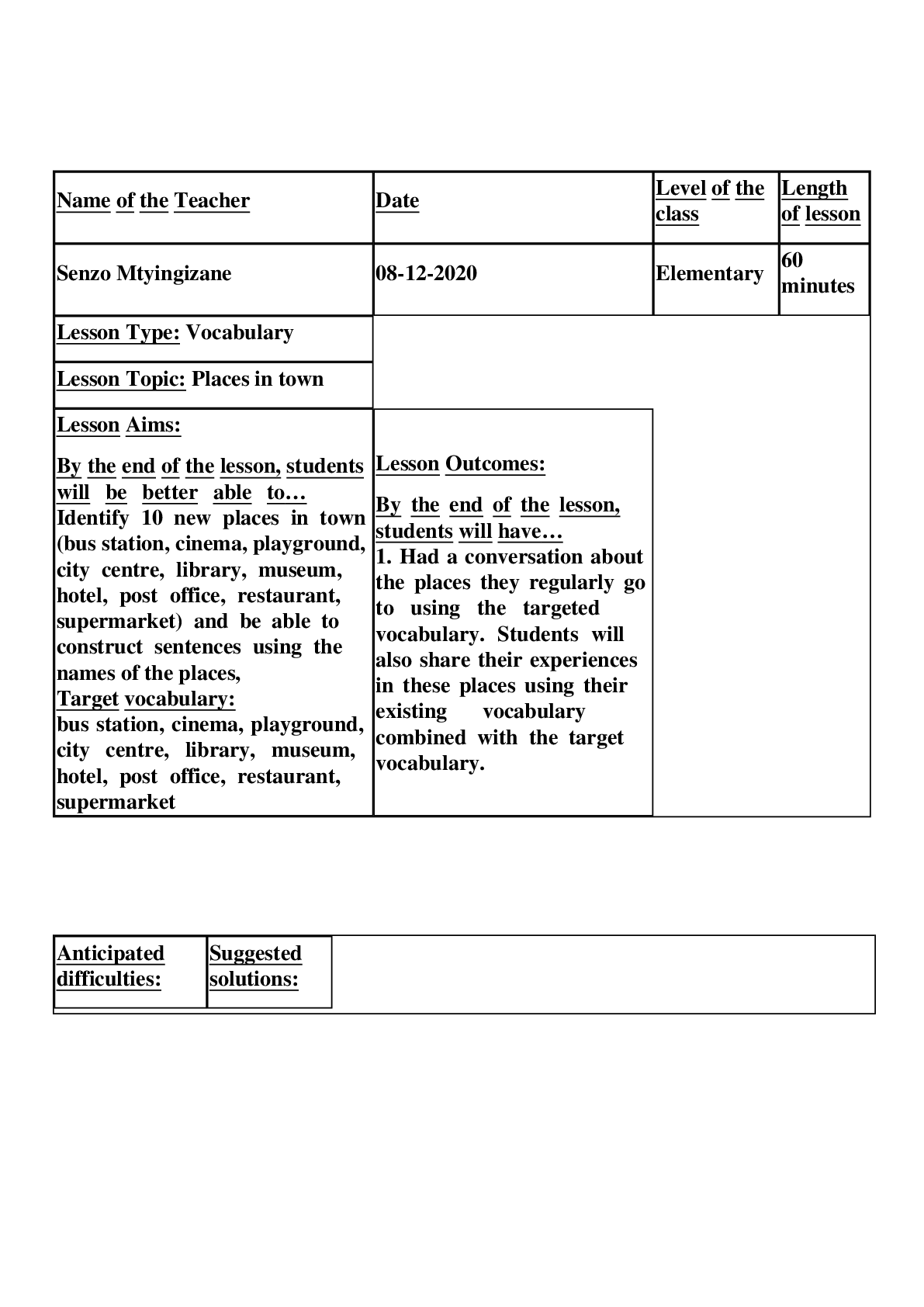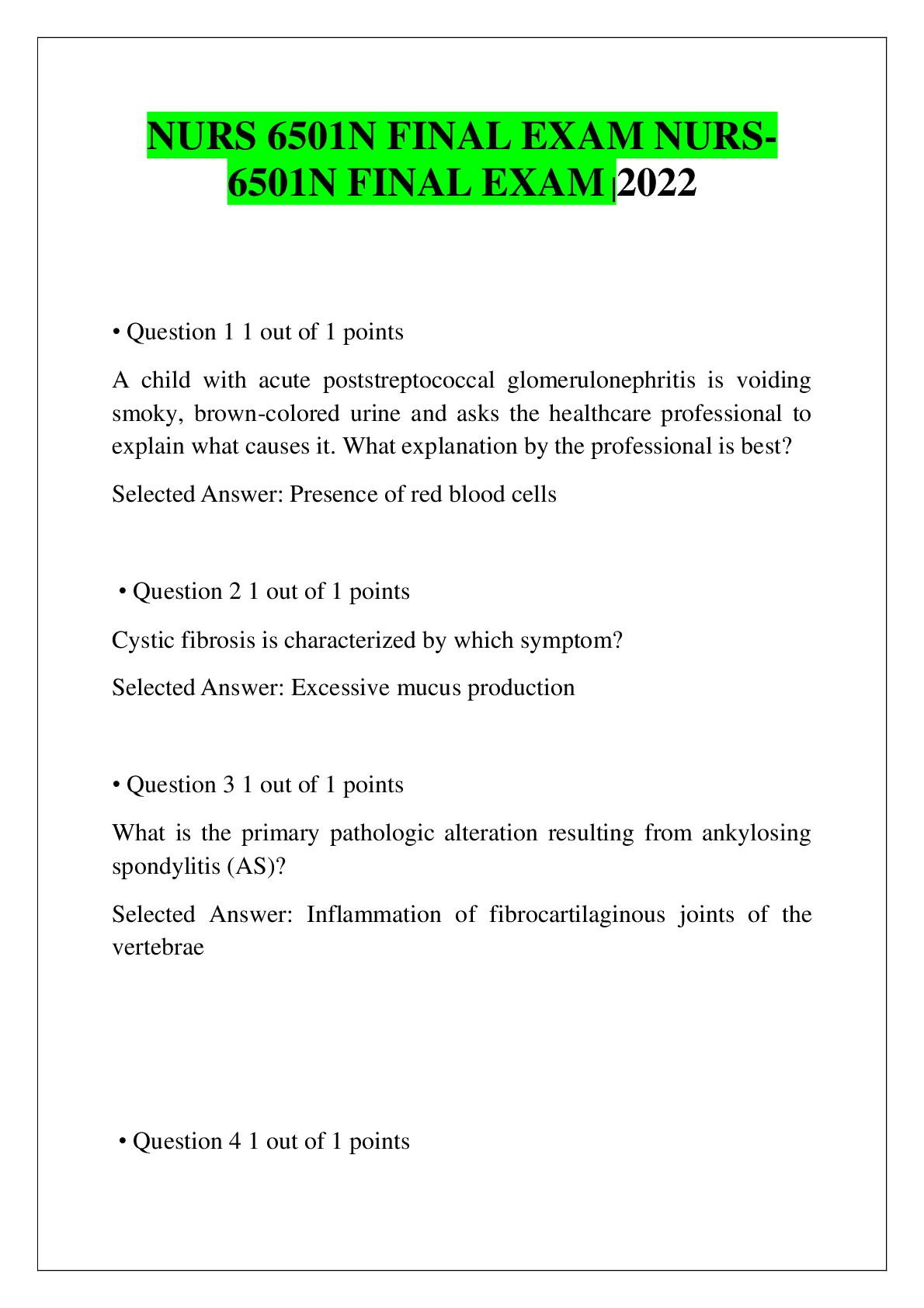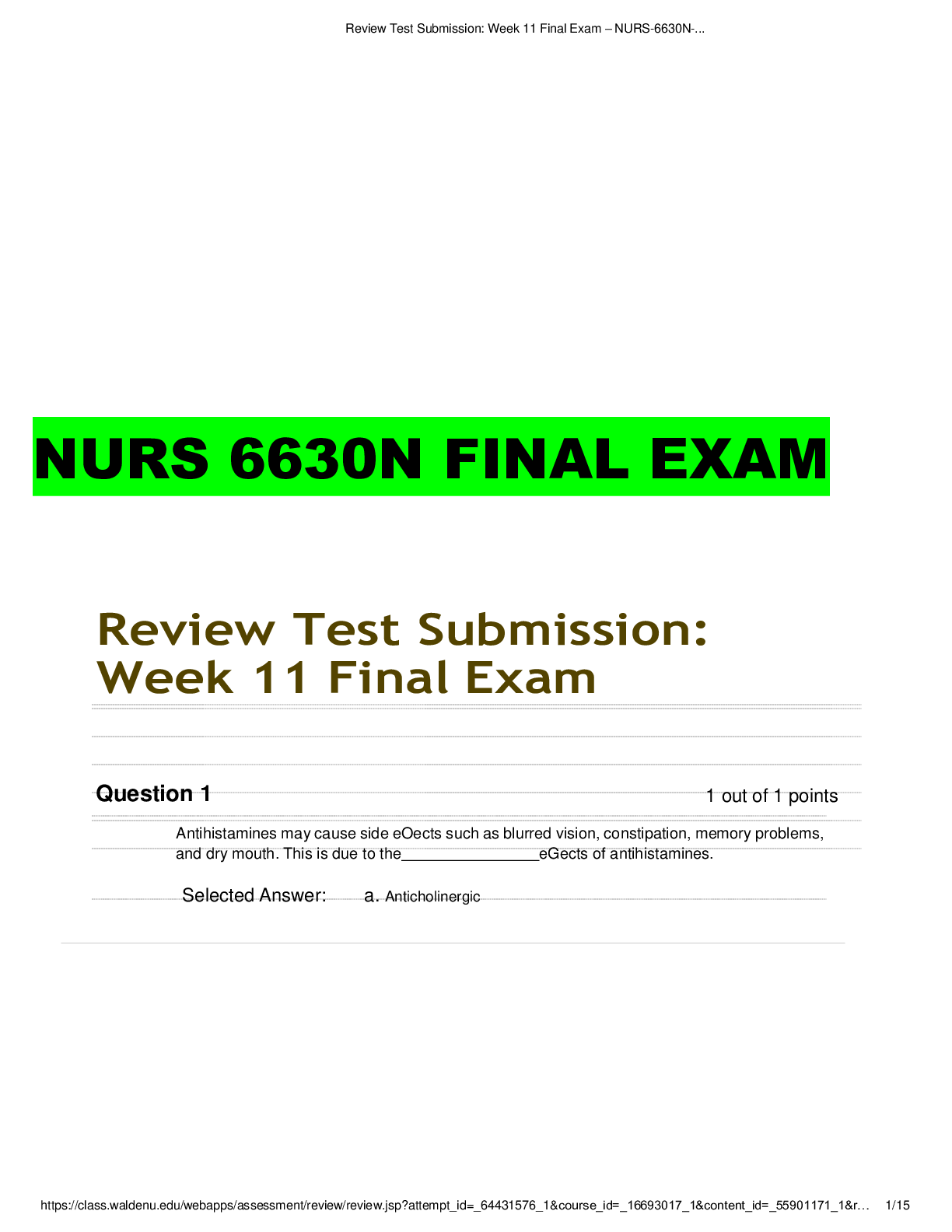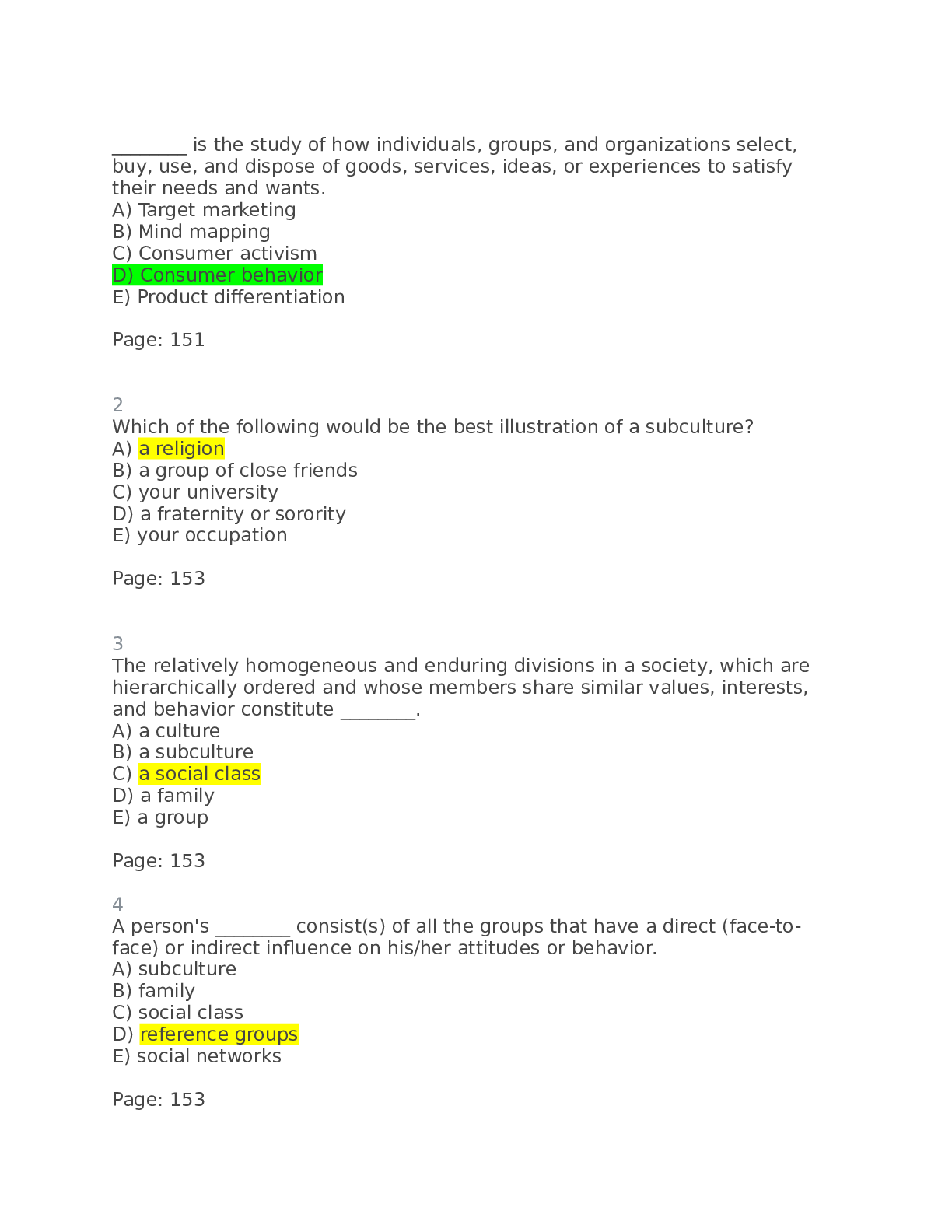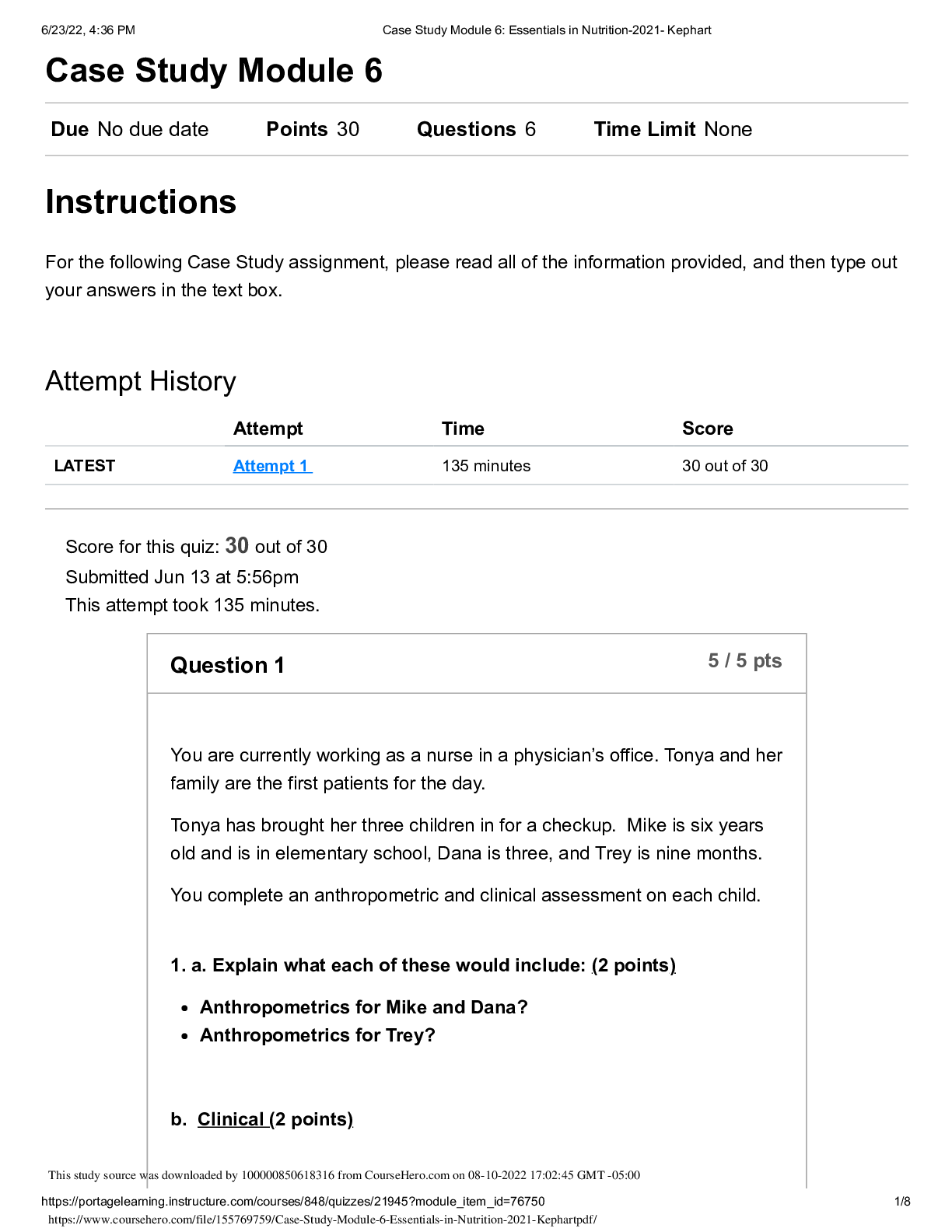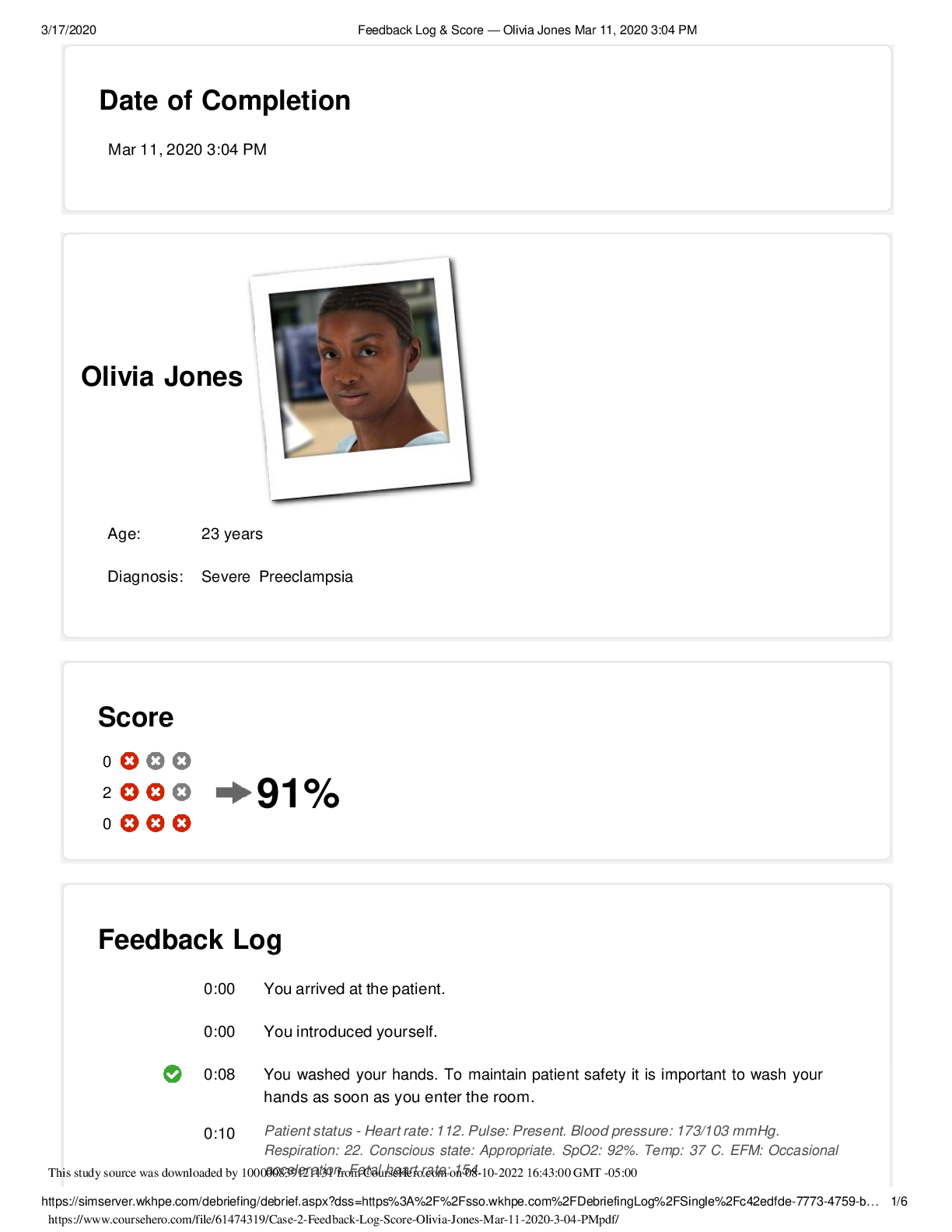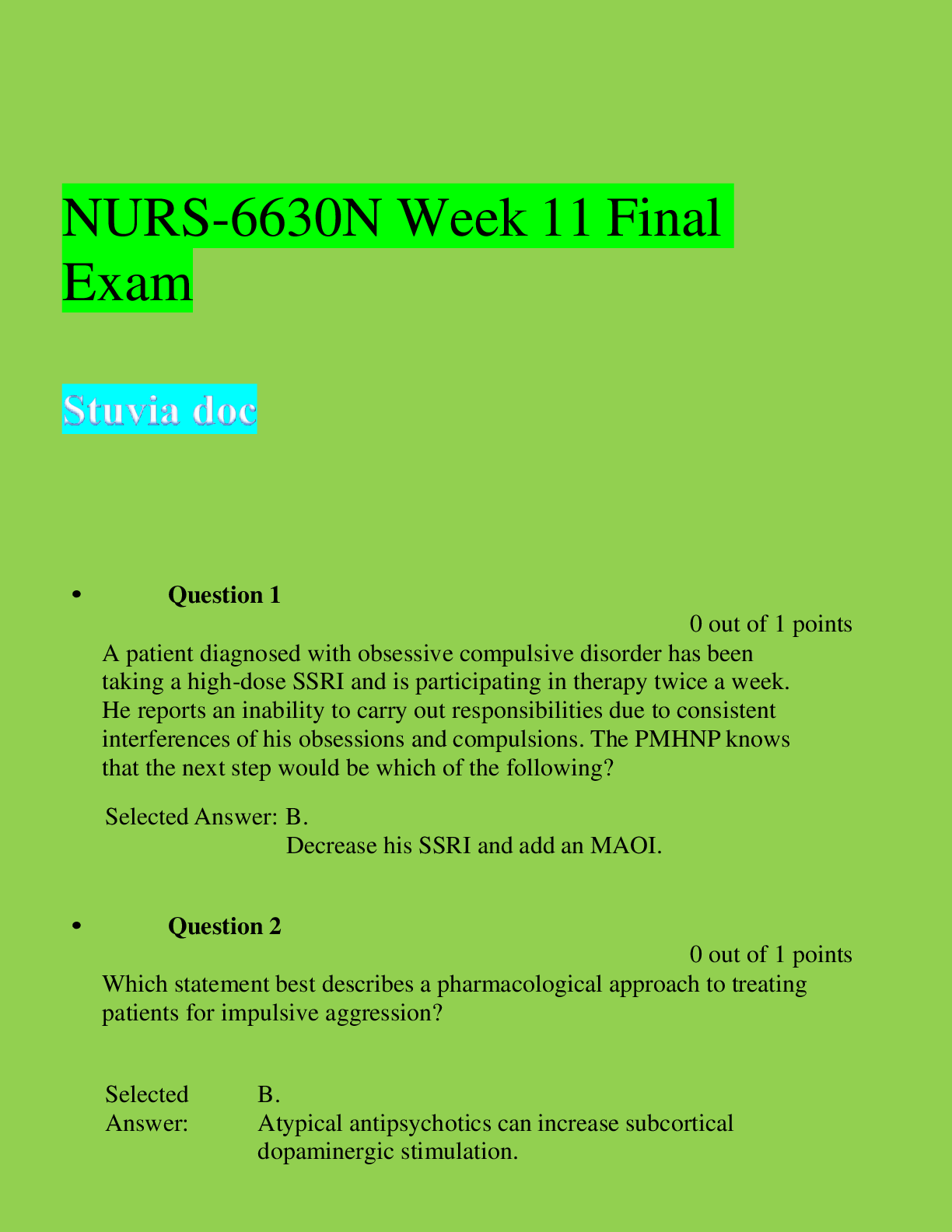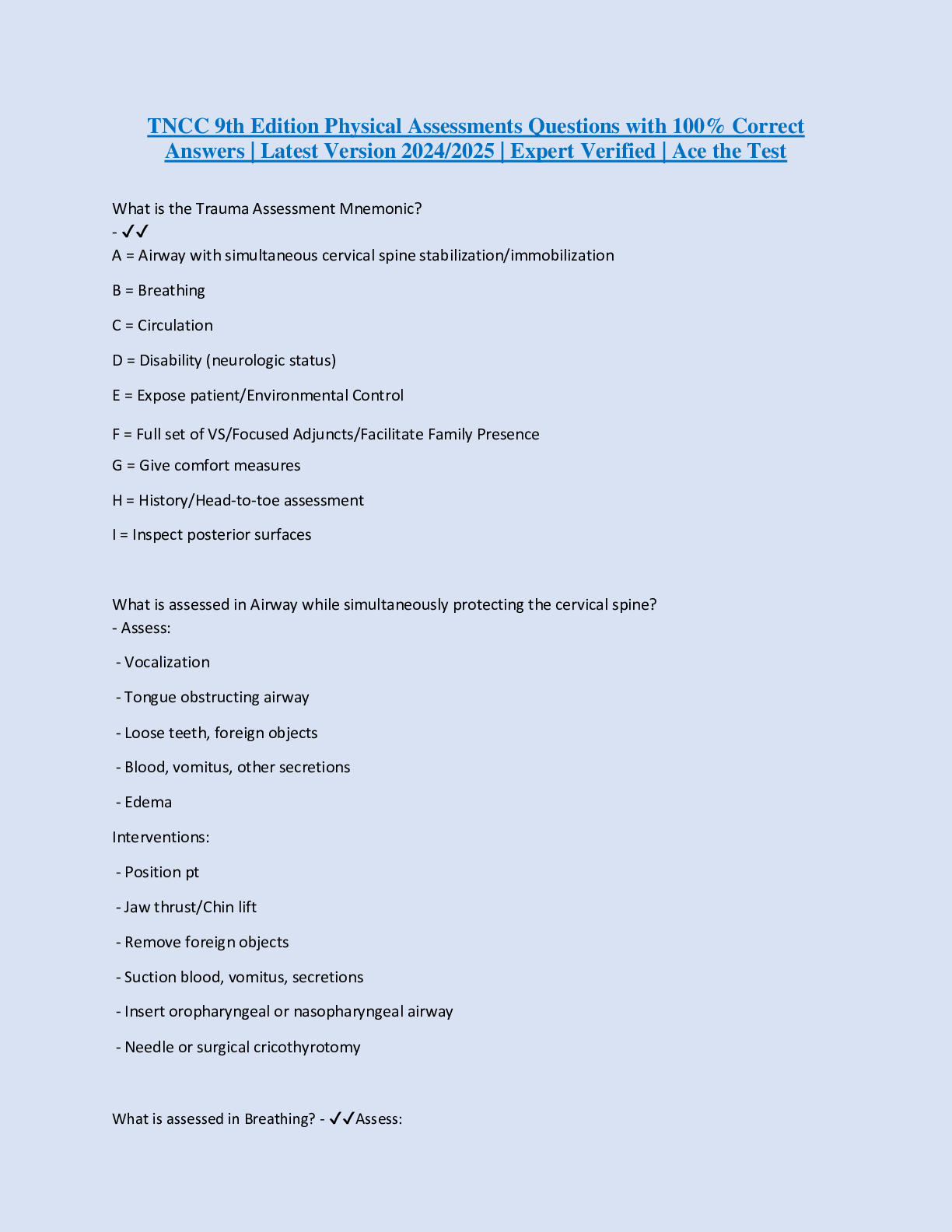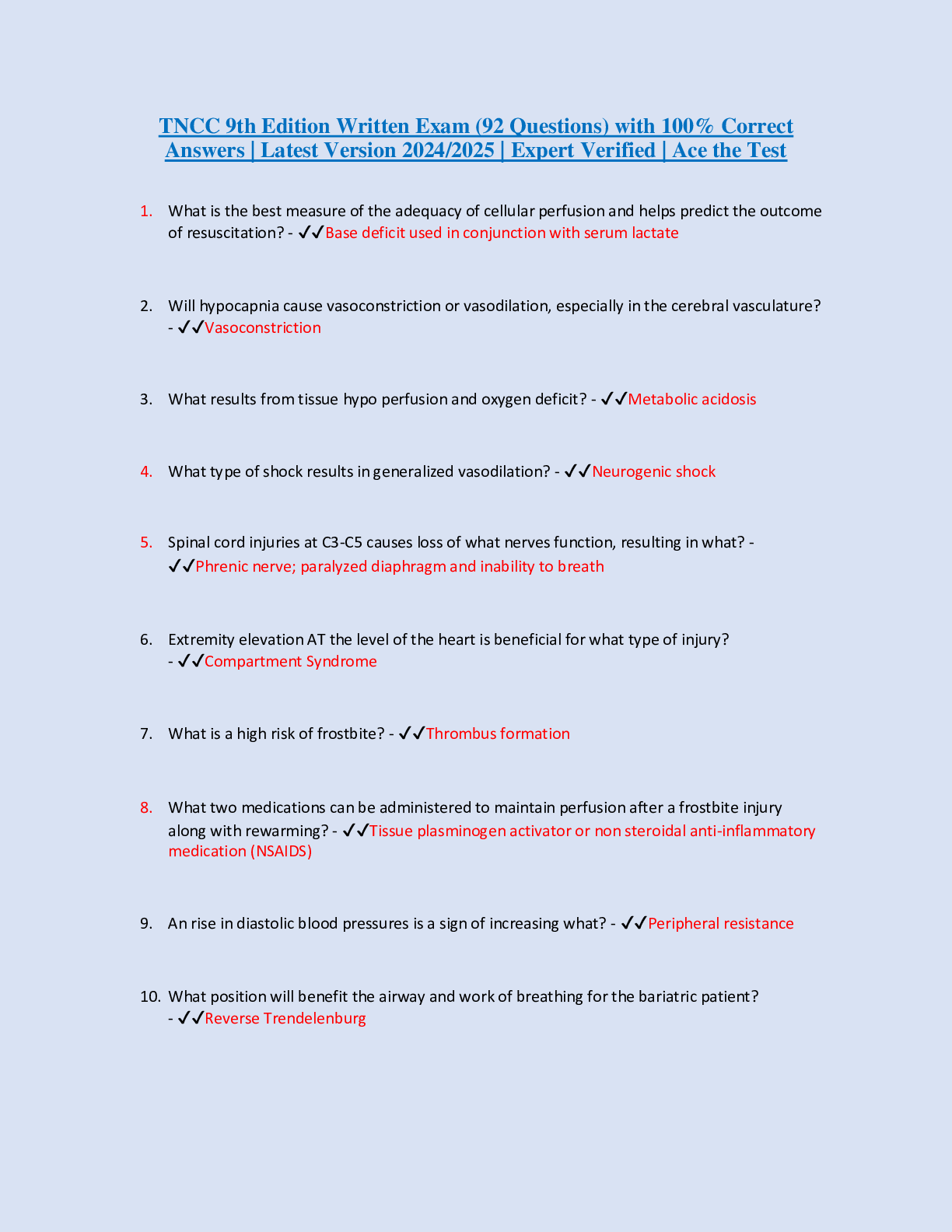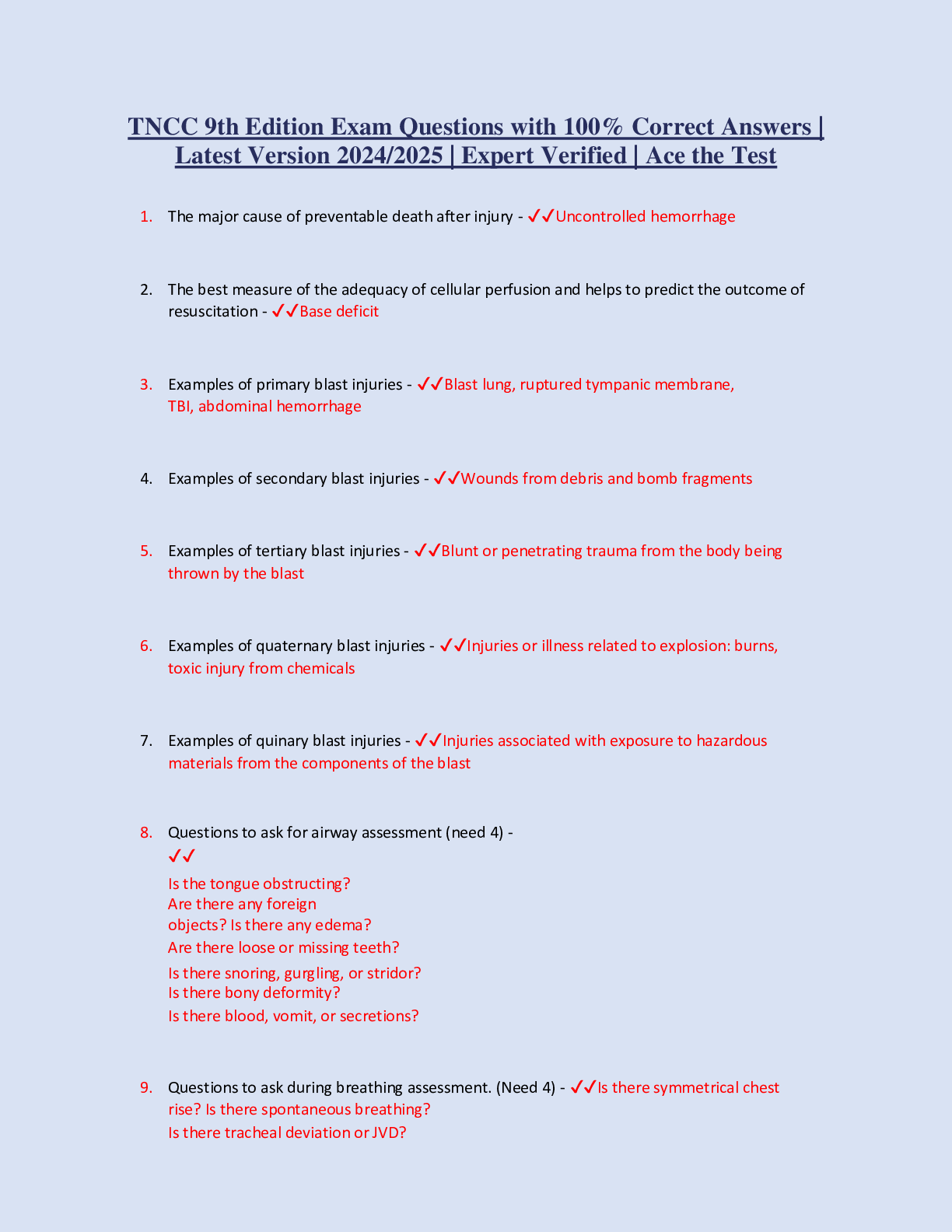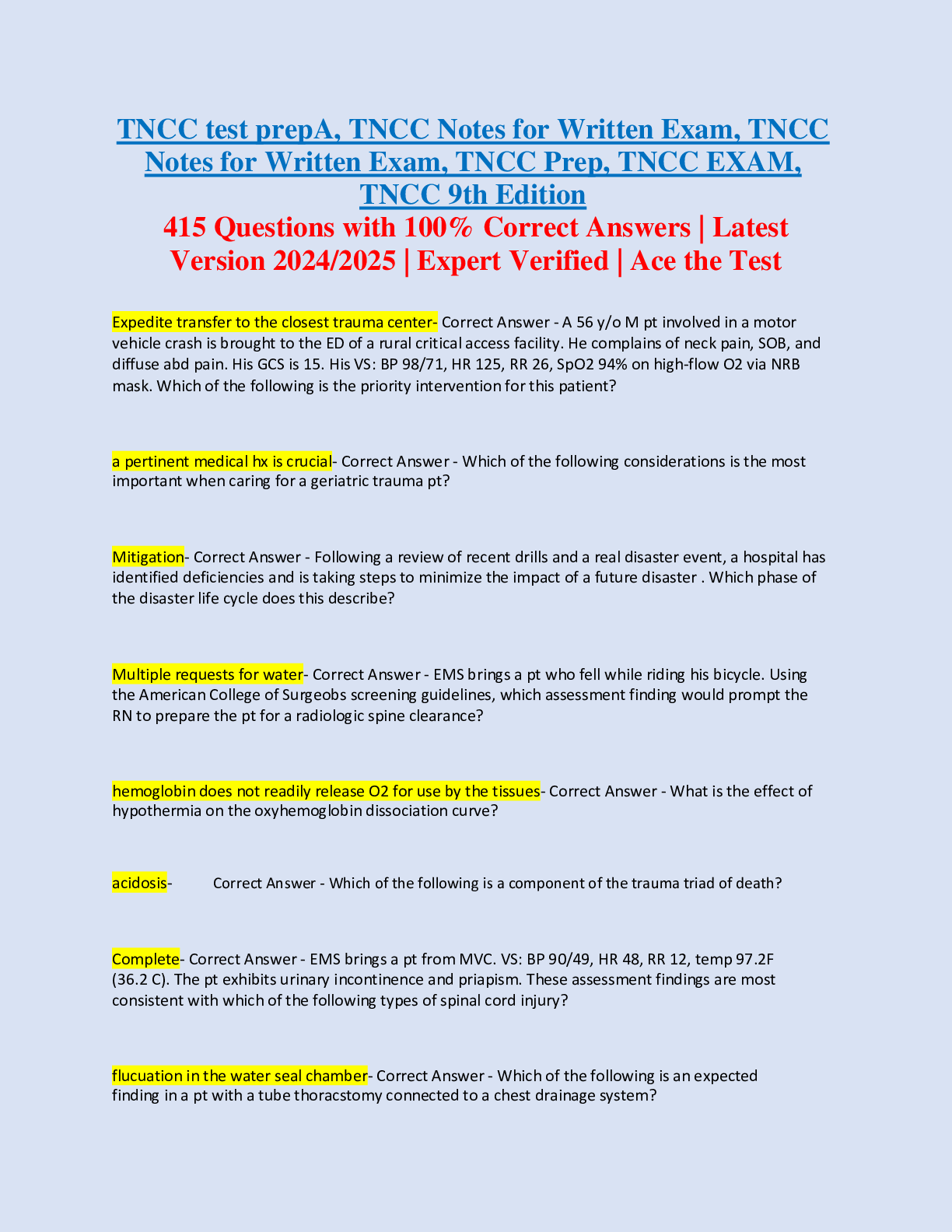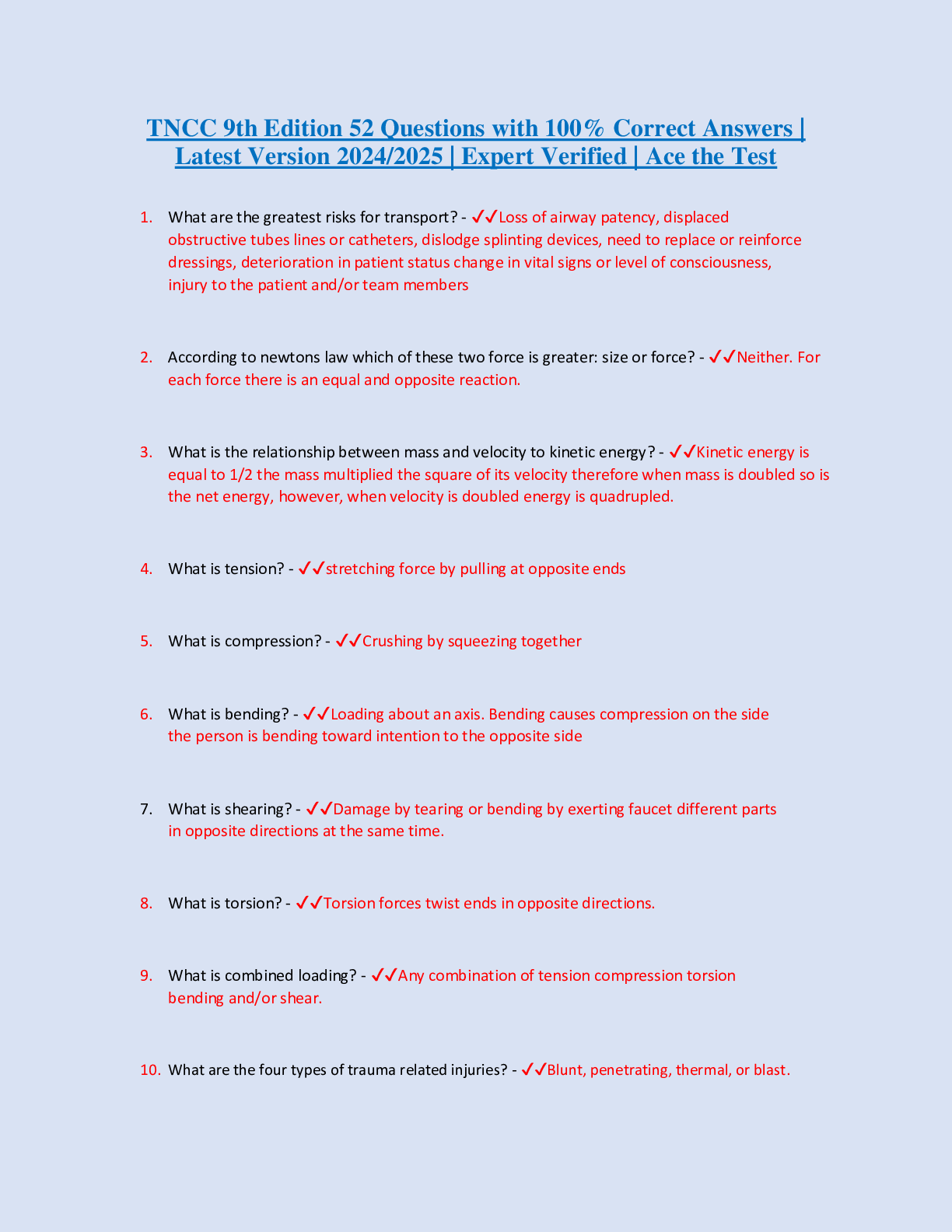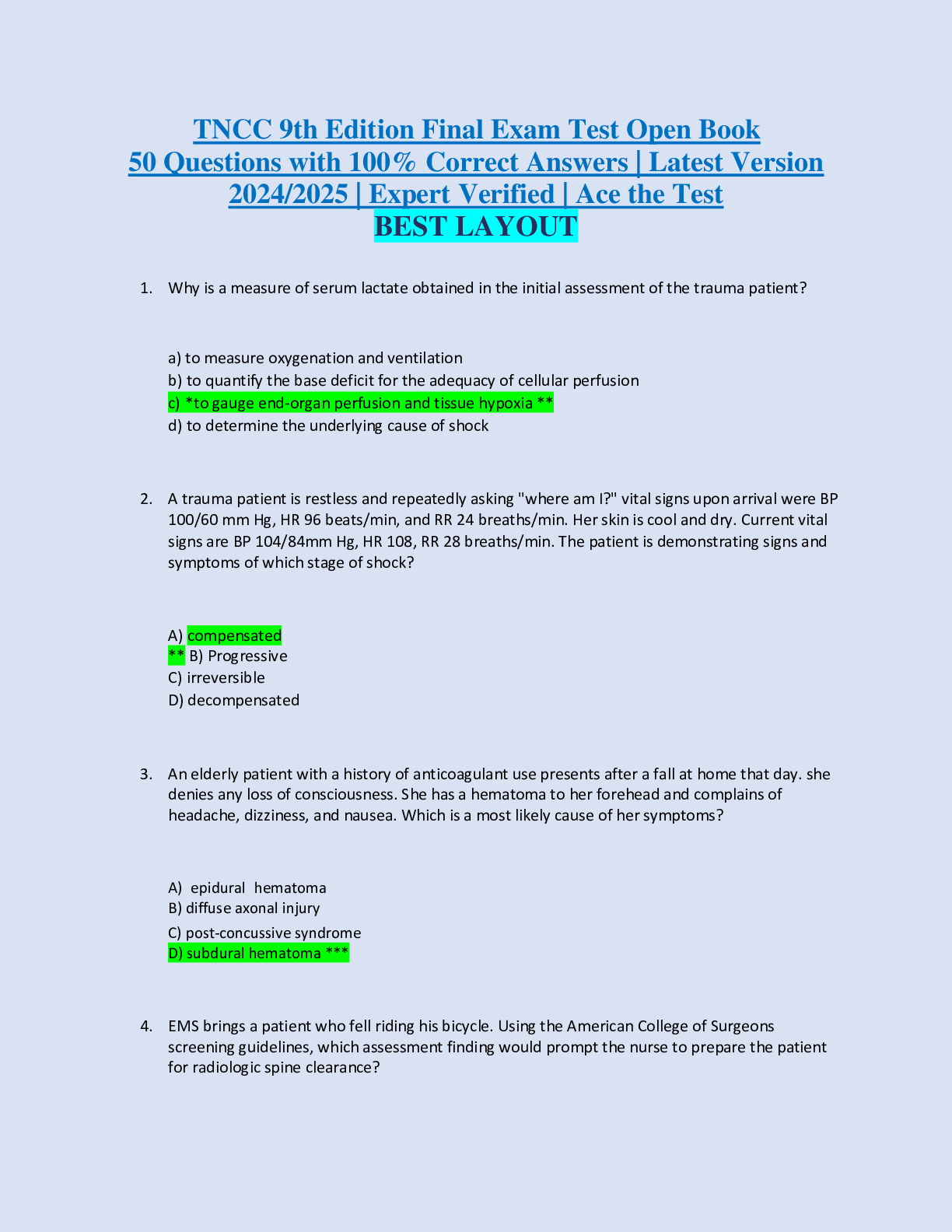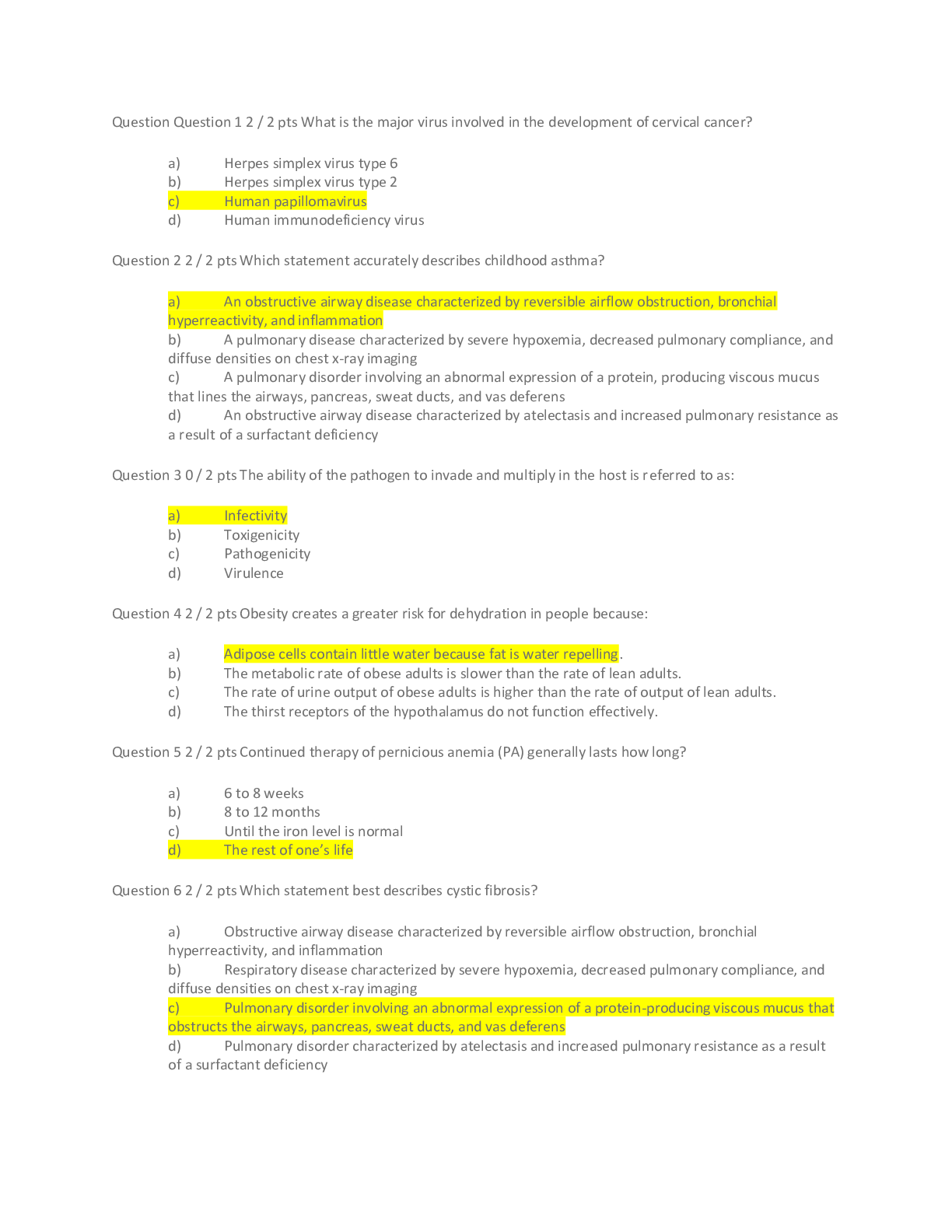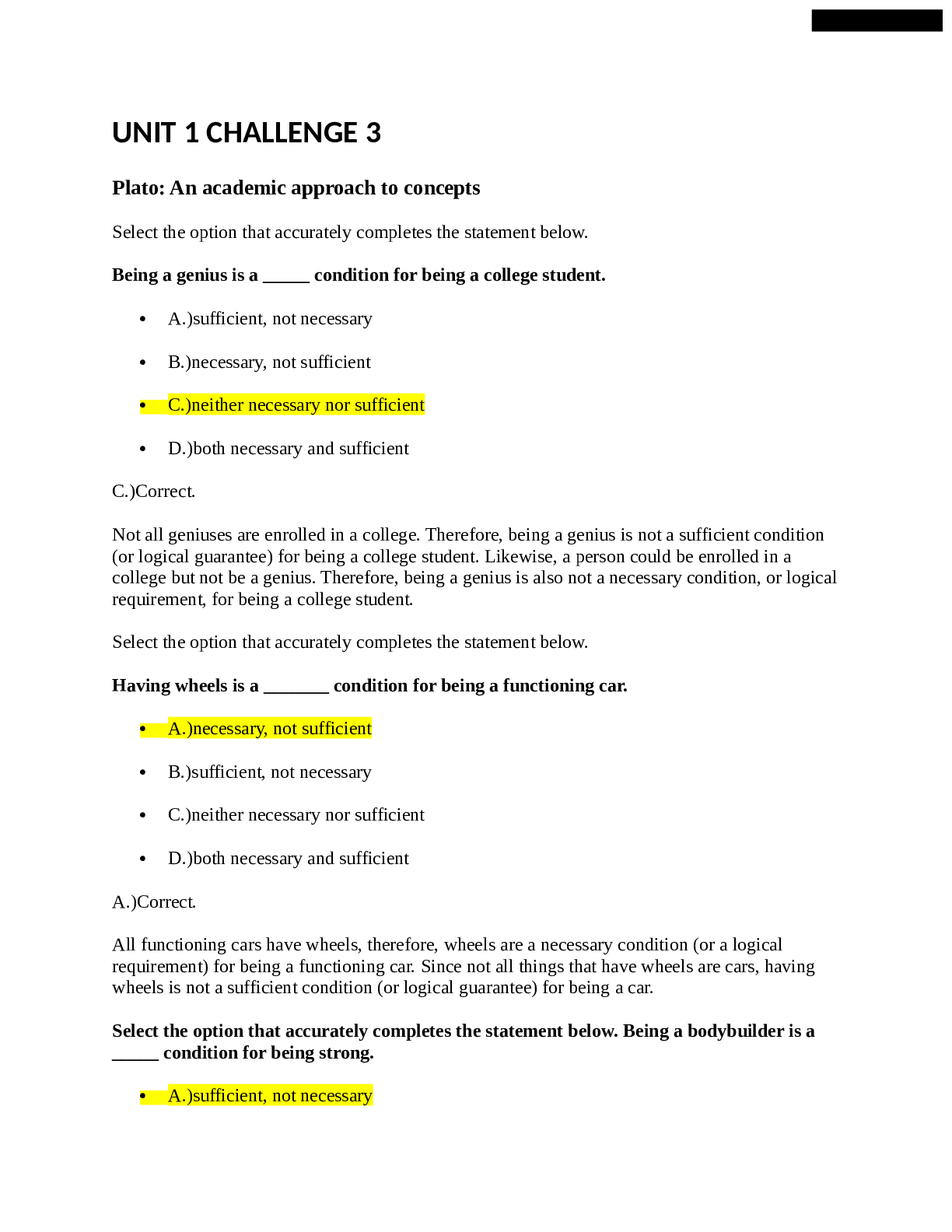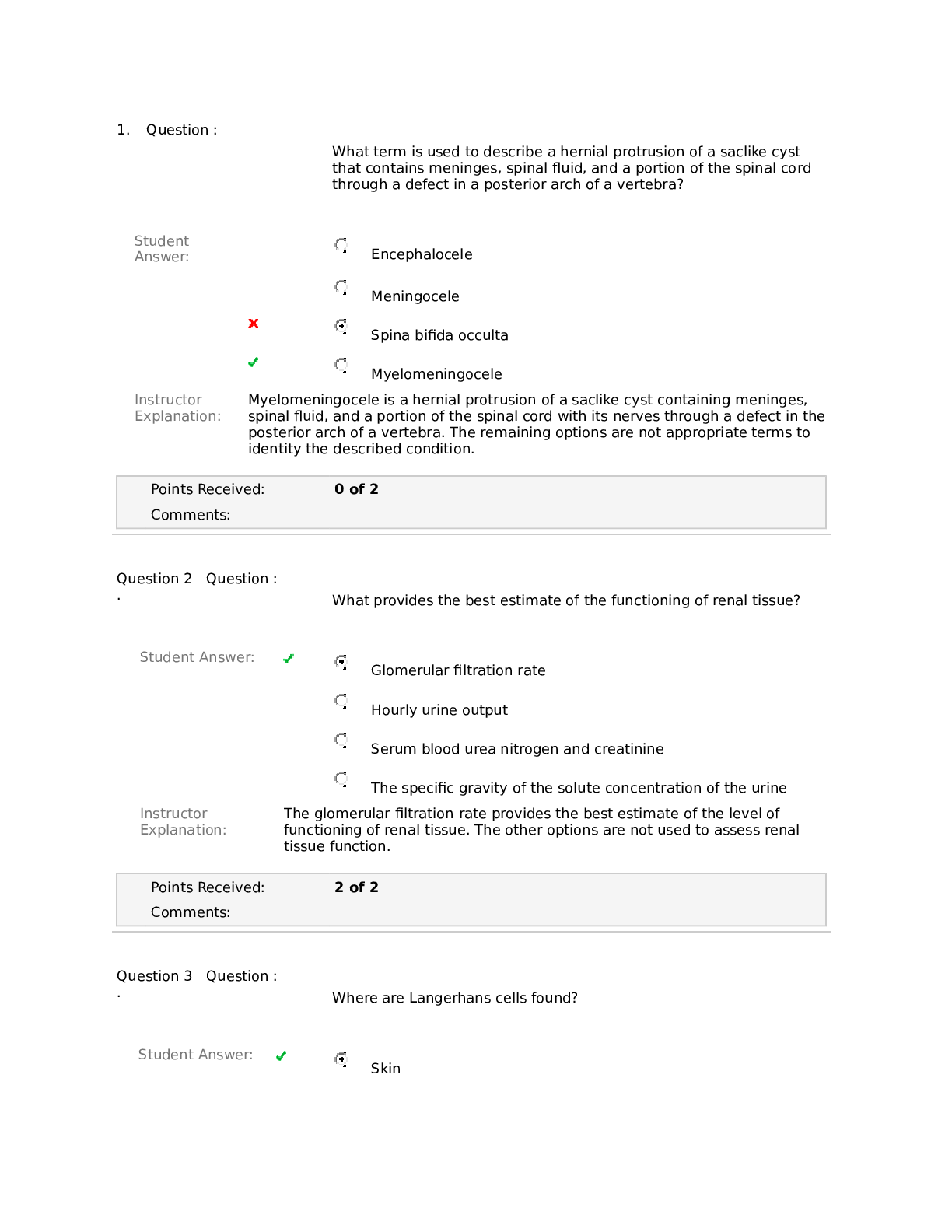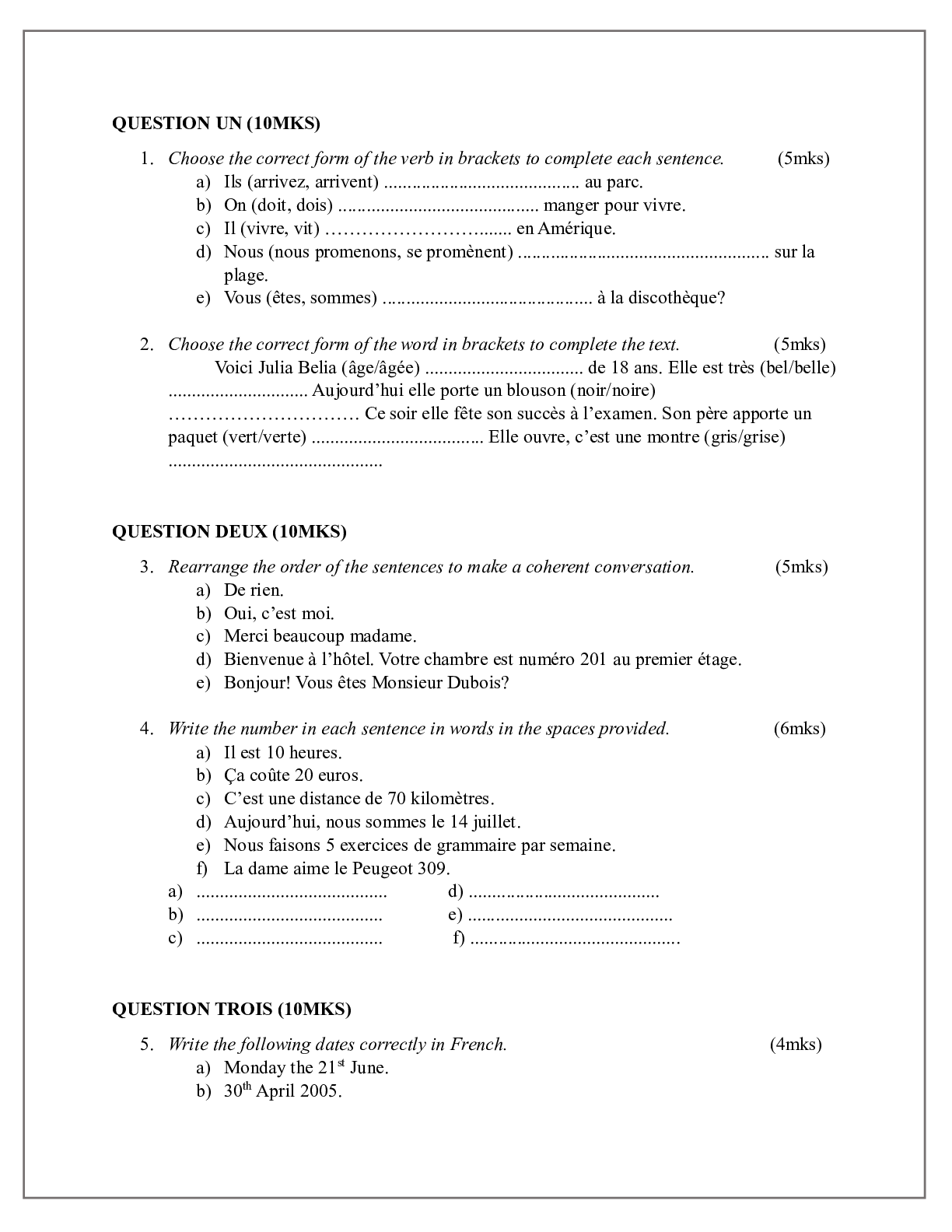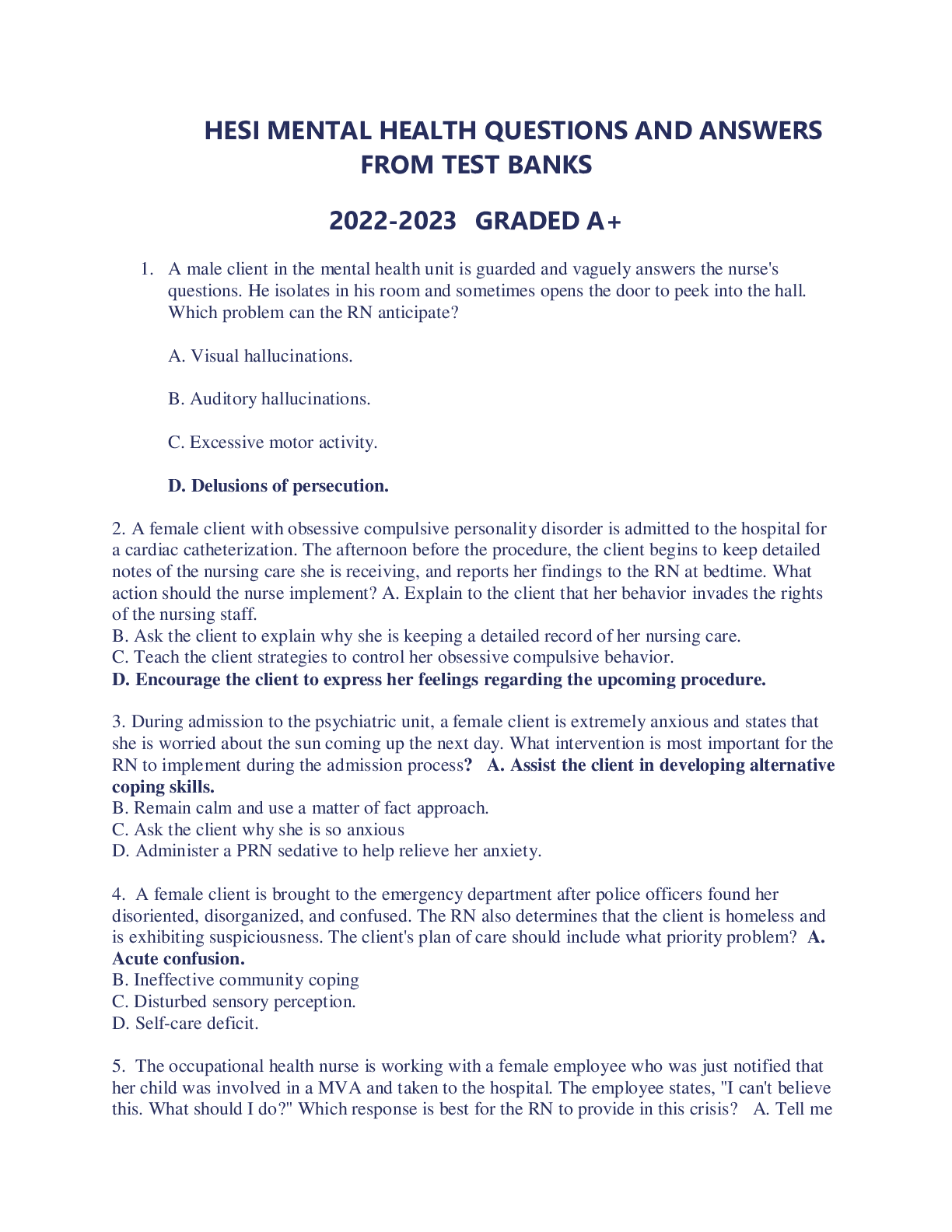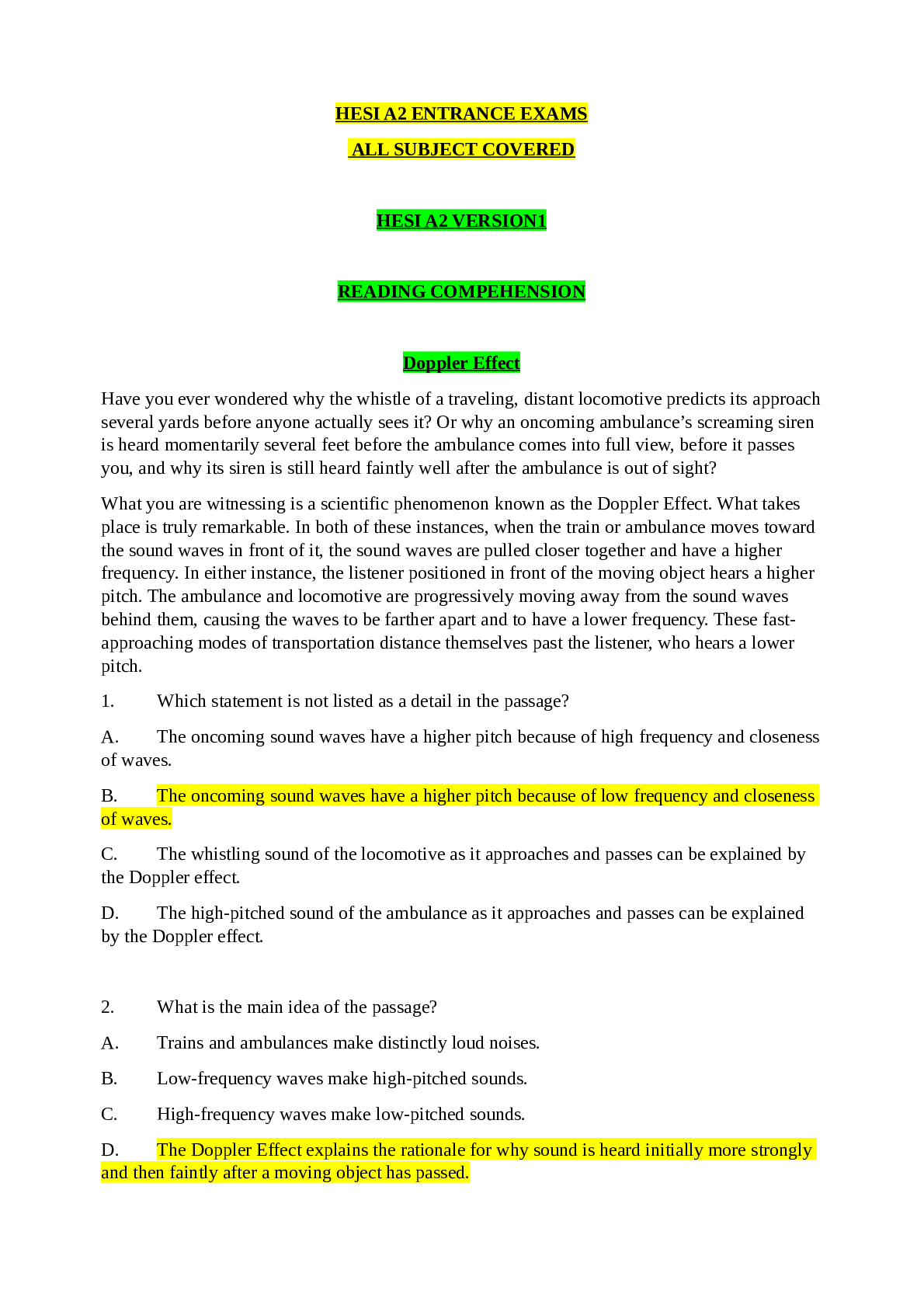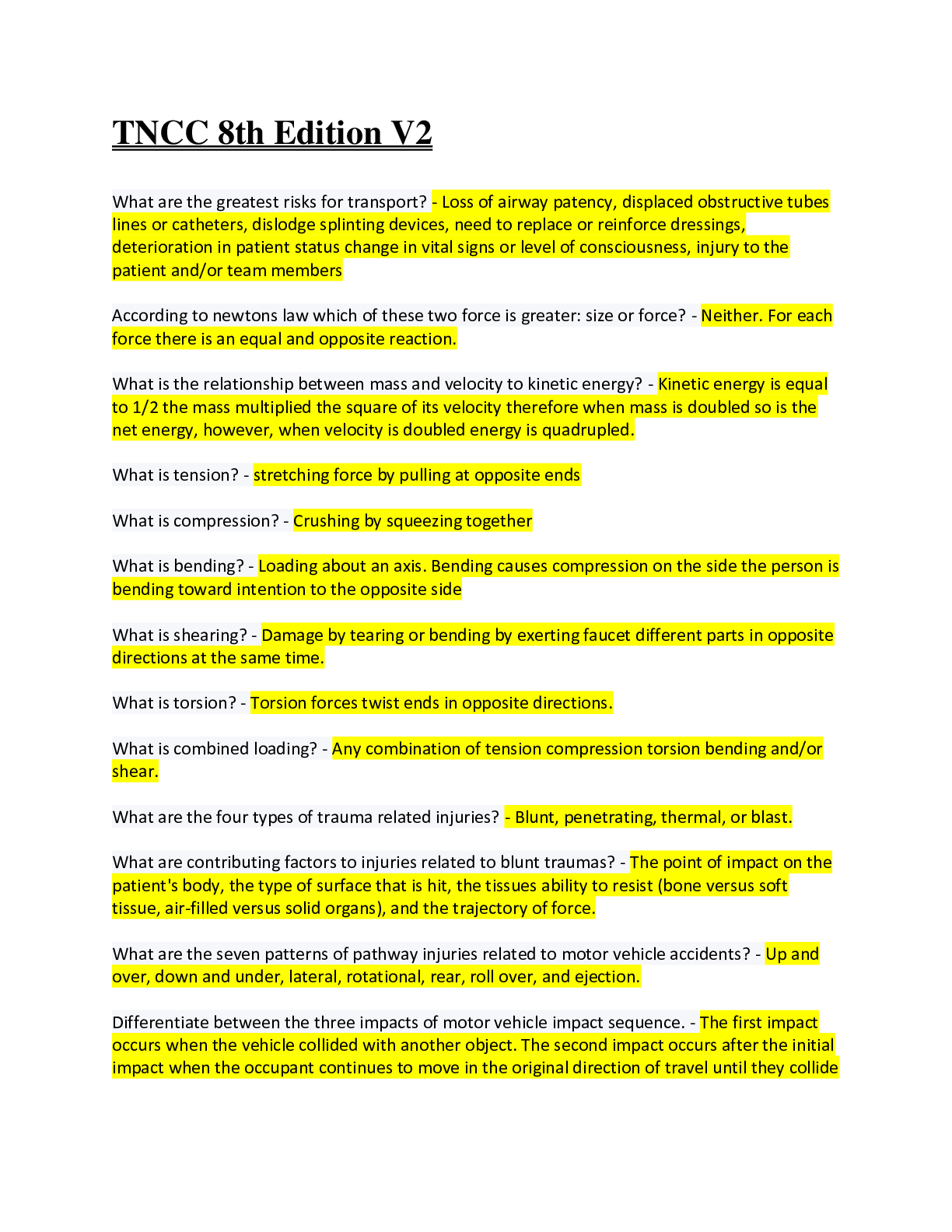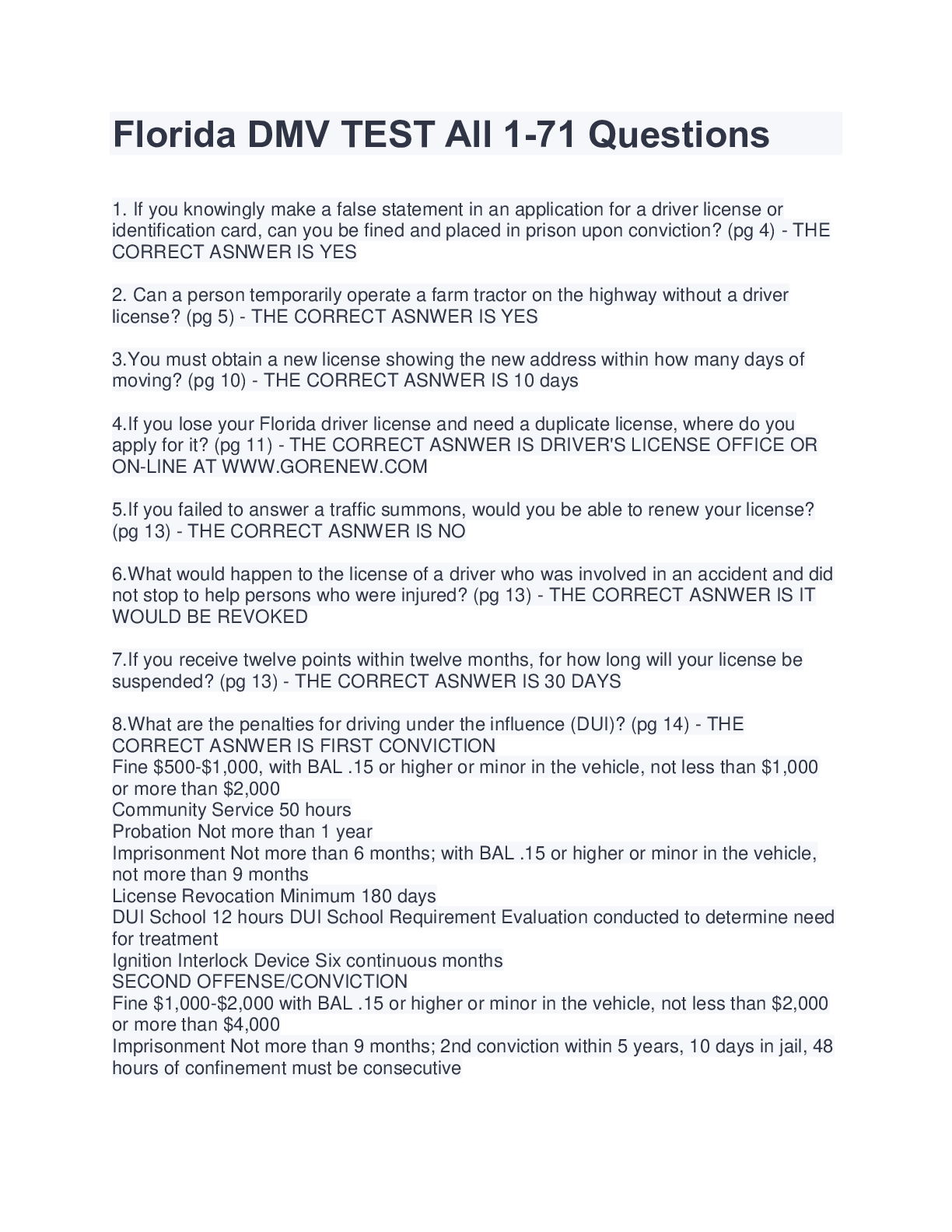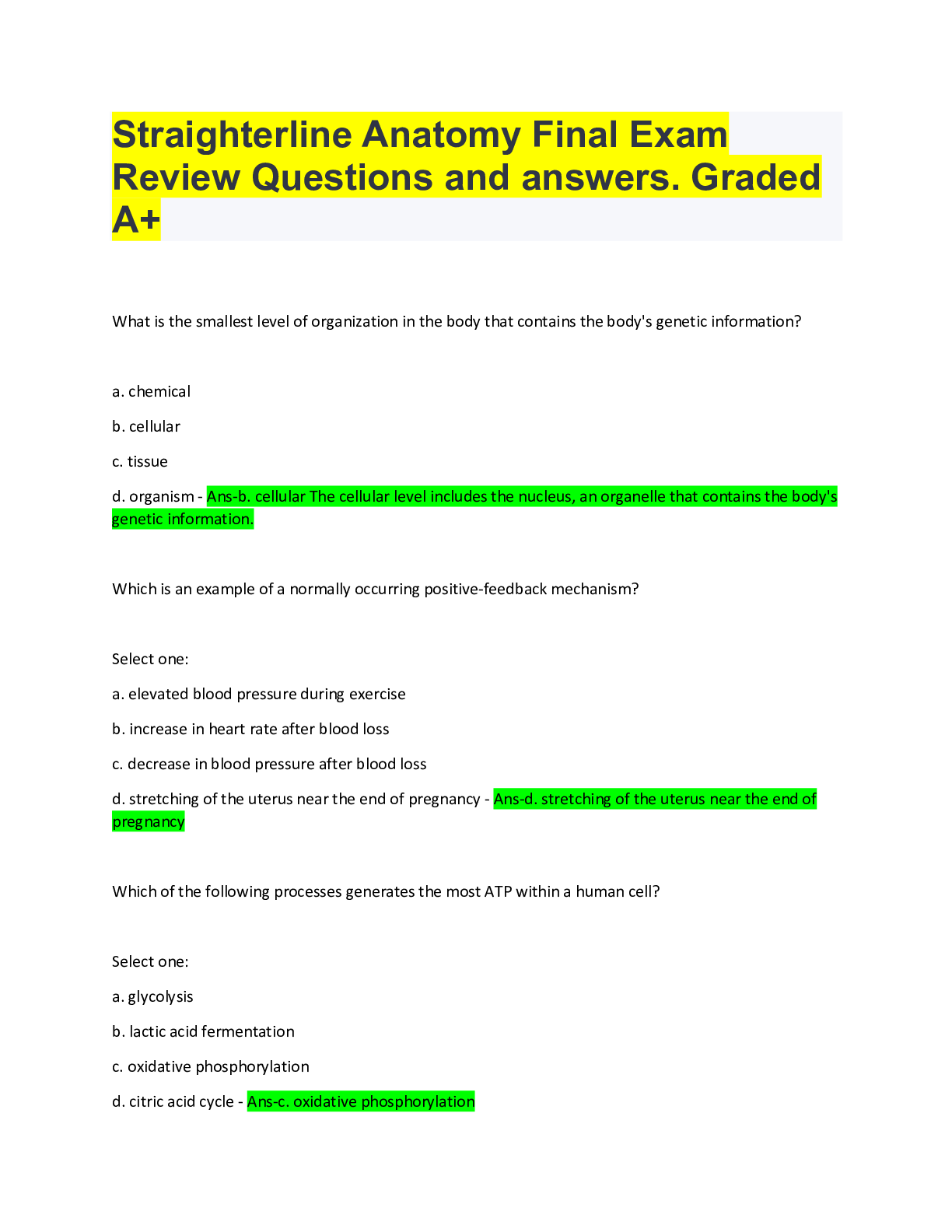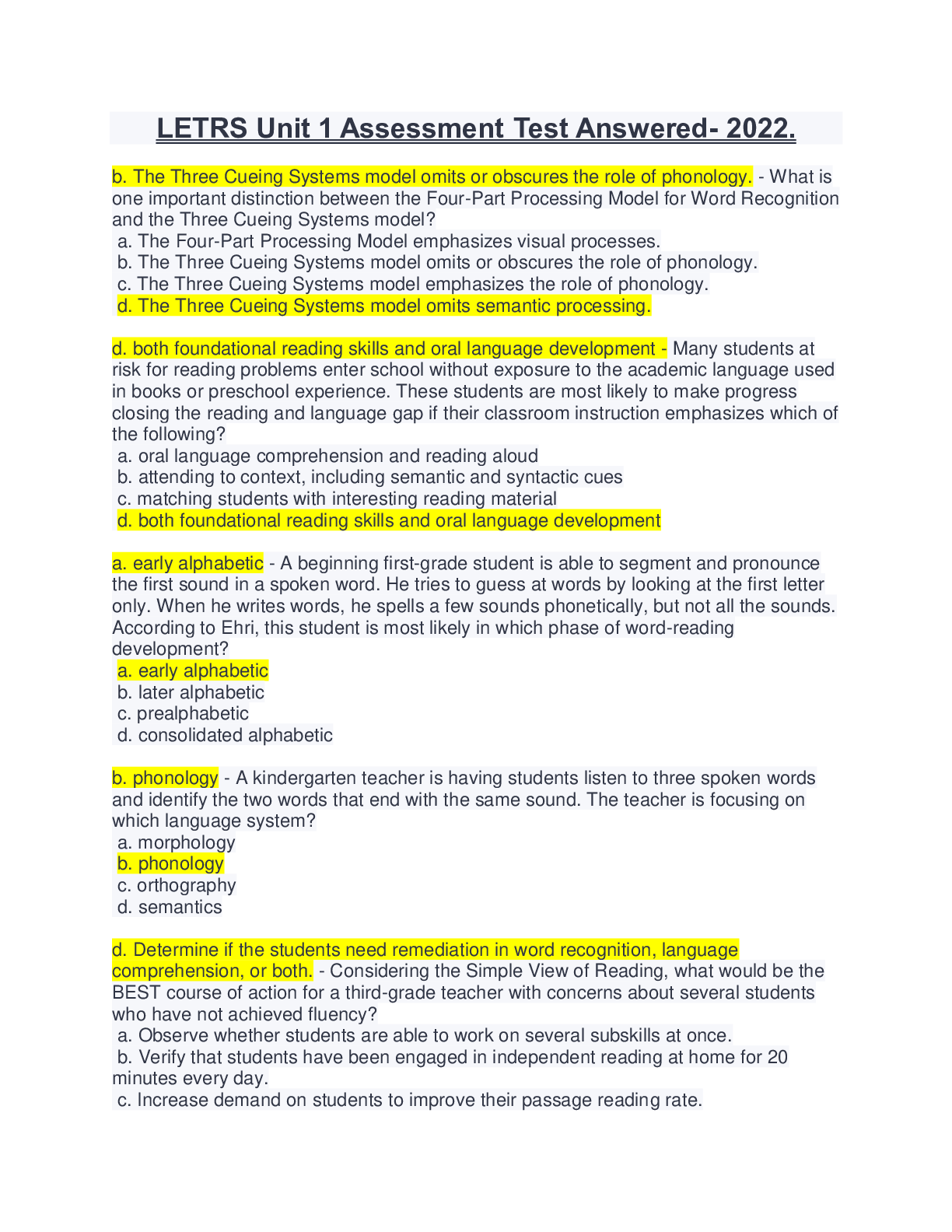Health Care > EXAM > Nrnp6531 Older Adult ch.10 (All)
Nrnp6531 Older Adult ch.10
Document Content and Description Below
Nrnp6531 Older Adult ch.10 1. The nurse preparing an educational program focused on herbal supplement targets as a likely interested group: a. Inner-city females who live below the poverty level ... b. White females who own their own successful businesses c. Male Hispanic Americans who are single, divorced, or widowed d. Men and women from small rural communities who are self-employed farmers - answer ANS: B Non-Hispanic, white, older, normal-to-underweight women with more education were found to use dietary supplements more than any other racial, ethnic, age, or gender group. 2. During an admission interview, a patient tells the nurse about taking Ginkgo biloba daily. The nurse responds to this information by inquiring whether the client: a. has ever been screened for depression. b. experiences gastrointestinal (GI) upset. c. has concerns regarding impotence. d. has reoccurring bouts of bronchitis. - answer ANS: B Side effects of Ginkgo biloba include GI upset and should be assessed for by the nurse. Neither depression, nor impotence, nor chronic bronchitis conditions are generally self-treated with Gingko biloba. These conditions are not considered typical side effects of Gingko biloba either. 3. An older adult client is being seen for the first time at the outpatient geriatric clinic. As a component of the nursing admission history, the nurse inquires about the use of herbs and other supplements. The basis for this inquiry is that such herbal therapy: a. may interact with prescription medications. b. is hazardous when used by older adults. c. replaces the need for prescription medications. d. causes excessive sedation in older adults. - answer ANS: A The gerontological nurse has the obligation to ask questions and obtain specific information about the use of herbs and supplements because they may interact with prescription medications. When used cautiously and with knowledge of potential interactions with other medications, herbs and supplements are not hazardous. They do not replace the need for prescription medications. Not all herbs and supplements cause excessive sedation. 4. The nurse is conducting a presurgical interview when it is noted that the older adult patient's medication list includes Tylenol 650 mg four times a day for arthritic pain, gingko 80 mg twice a day, and glucosamine chondroitin 500 mg three times per day. The nurse proceeds to share with the client that in order to minimize the risk for postsurgical complications, there is the need to refrain from taking: a. glucosamine chondroitin for 1-2 weeks due to a potential for excess anesthetic sedation. [Show More]
Last updated: 1 year ago
Preview 1 out of 4 pages
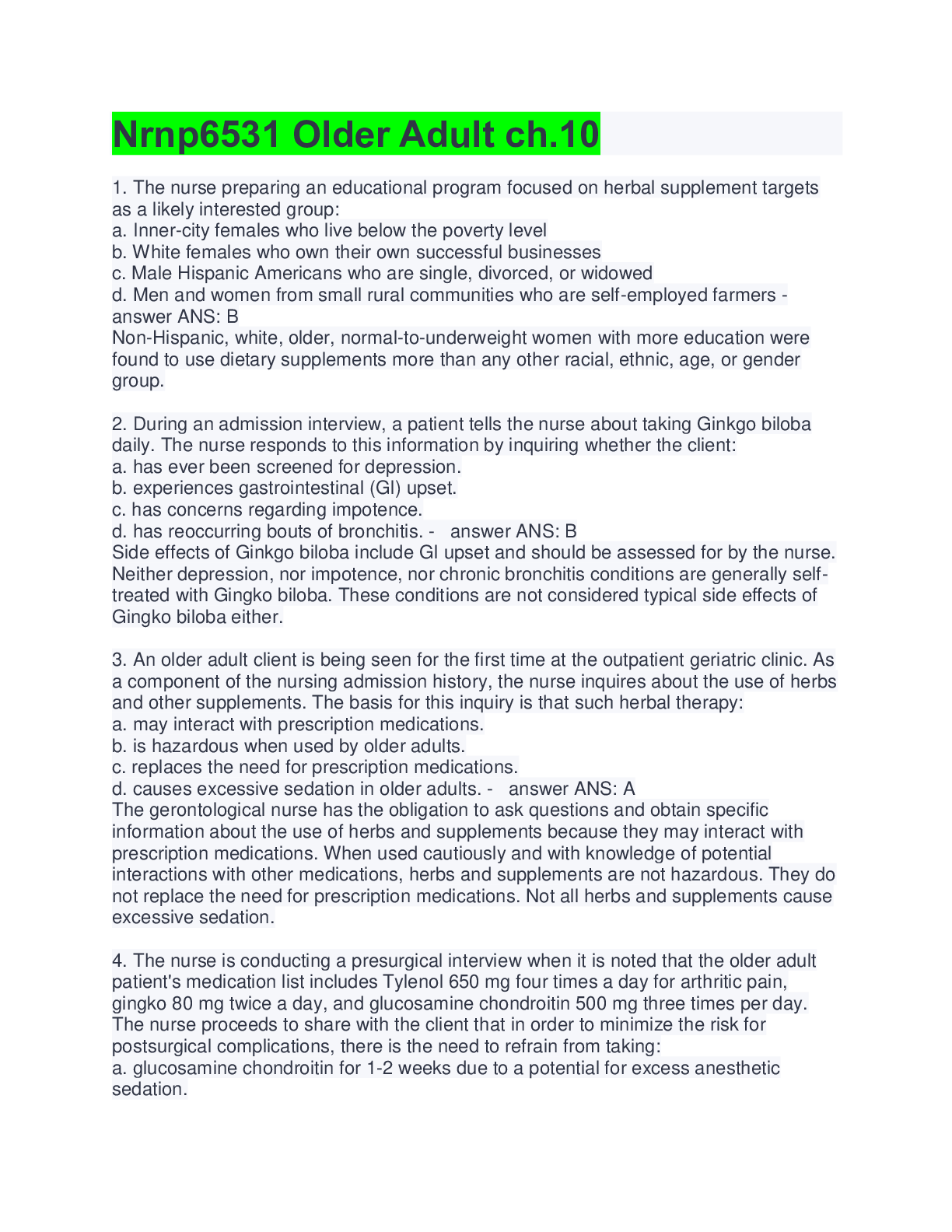
Reviews( 0 )
Document information
Connected school, study & course
About the document
Uploaded On
Aug 19, 2022
Number of pages
4
Written in
Additional information
This document has been written for:
Uploaded
Aug 19, 2022
Downloads
0
Views
24

